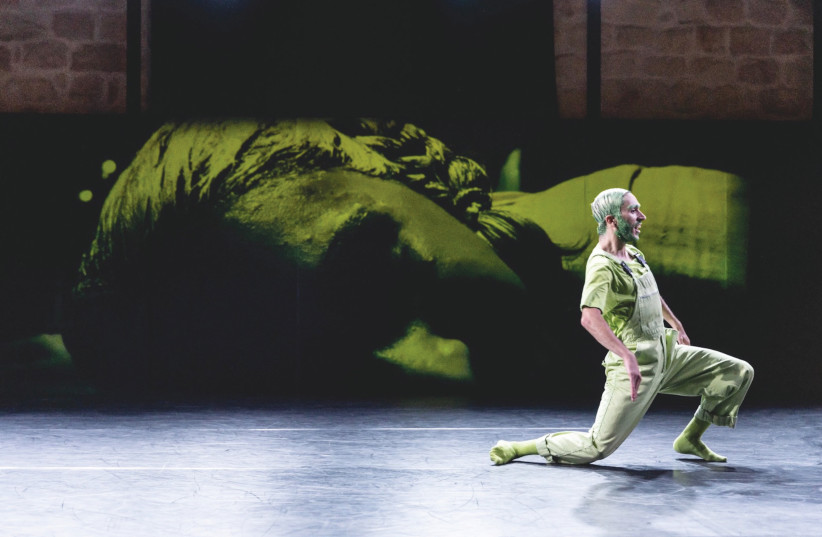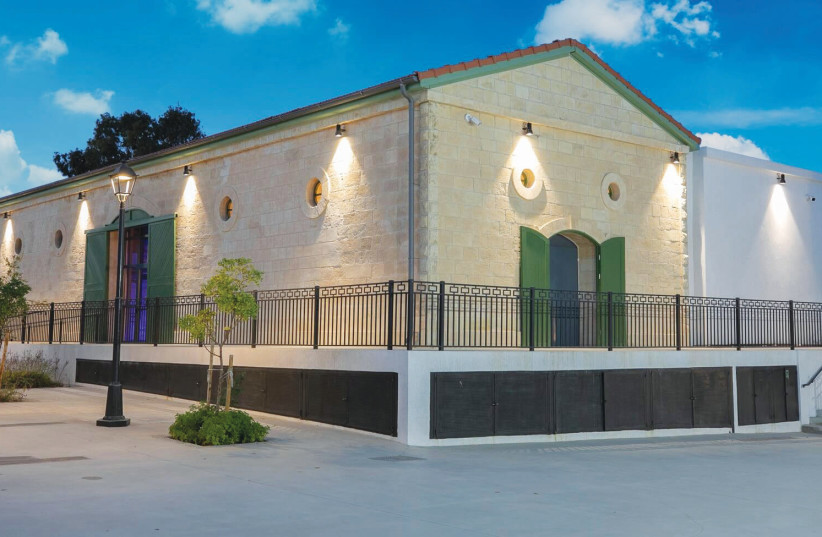In every arts field, there are those that produce the work and those that take care of everything else. From producers to assistants to gallerists, presenters, fundraisers and philanthropists, the cogs and wheels of cultural machines are many. Even the most talented individual needs to be discovered in order to succeed. More often than not, those playing supporting roles in the making of art receive little credit.
Were it not for Dedi Alufer, the newly opened Beersheba House of Dance would never have come to be. A project that has taken over two decades to come to fruition, this budding cultural institution promises to not only provide a home for dance creations in the Negev but to reshape the way audiences around Israel consume culture.
What is the House of Dance?
Alufer, CEO of the House of Dance, is a native resident of the southern city and a former dancer. He has walked this project from concept to realization, drawing on his experience in the city and on the stage.
“Years ago, a round table discussion was held about being a city of opportunities and talked about what projects we wanted to put into motion for the thirty years to come in the city. I proposed a dance house that would create an experience for the dance world,” explains Alufer over the phone. It is early morning and Alufer is preparing to fly to London the same evening.

Eight years ago, Alufer founded Sol Dance Company together with Artistic Director and house choreographer Eyal Dadon. The troupe began performing in Israel and quickly garnered international attention. Today, Sol is a creative home to a group of outstanding dancers. Almost a decade later, Alufer is opening the doors of the House of Dance. “This represents years of work in the city of Beersheba and is one cultural institution that is blossoming here.”
To make these two seemingly impossible ventures a reality, Alufer enlisted the support and help of a long list of individuals and organizations. The House of Dance’s opening, featuring the premiere of Georgette, Eyal Dadon’s creation for Sol Dance Company, will celebrate the combined effort of Beersheba Mayor Rubik Danilovich and the Beersheba Municipality, Kivunim – The Municipal Organization for Recreation and Culture in Beersheba and the Negev Development Authority.
“This project speaks of Beersheba’s development in many ways. The city is building itself from foundations to content for the next century,” Alufer says.

“This project speaks of Beersheba’s development in many ways. The city is building itself from foundations to content for the next century.”
Dedi Alufer
Alufer’s lexicon rings more corporate than cultural. When speaking of the House of Dance and resident Sol Dance Company, he uses the term startup often. A holistic perspective on the finances involved in creating and presenting dance is part of Alufer’s agenda and it will certainly benefit the artists he works with.
“After the army I decided that I didn’t want to do anything serious. I started to dance and it engaged me stage after stage. I stopped dancing because I understood that if I continued dancing, I wouldn’t be able to manage my life in the way I wanted.
"The salary dancers made then made me think twice if I could afford to ride the bus. Part of my agenda at the House of Dance is to improve the standing of dancers financially and beyond and to look at what happens to them when they stop dancing. We want to create a healthier path, a more protective one that makes sure they don’t get thrown out of the art world when they stop dancing,” he says.
Alufer is also conscious of the needs and desires of his audience. “The Israeli dance audience is getting smaller. I think we need to revive the dance audience and the way people like to experience dance is through experiences,” explains Alufer.
“The House of Dance is in the Old City. It is on 1.5 dunams on an old Ottoman train station. It has an oriental nature. It has an orchard and a courtyard, an indoor hall and outside stages. All these spaces afford variations of behavior. When you come to us, you can sit in the orchard, you can drink wine from the Negev and try cheese from the Negev.”
Alufer does not plan to stop at Beersheba; rather he is putting plans in motion to establish sister institutions in old cities around the country, such as Ramle and Ashkelon. “I want to create in places where there is not, not where there is,” he says.
To read more about Sol Dance Company and the Beersheba House of Dance, visit: www.sol-dance-company.org.
